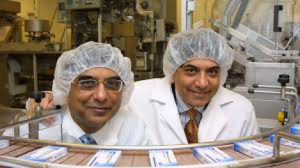How to squeeze the NHS and get a gong
 There is an old saying that ‘crime doesn’t pay’ but, in a system which is based upon the robbery of workers of the fruits of their labour power, who could believe such nonsense?
There is an old saying that ‘crime doesn’t pay’ but, in a system which is based upon the robbery of workers of the fruits of their labour power, who could believe such nonsense?
Step forward Vijay Patel, the latest example showing that crime pays very well thank you if your crime is against the right target and falls in line with the interests of the bourgeois 0.1 percent who really run Britain,
Mr Patel was given an OBE in the 2019 new year’s honours list for his “services to business and philanthropy”.
Mr Patel, who set up the drug distribution company Atnahs, set out to relieve the struggling NHS of huge amounts of its much-needed cash by seizing on a ‘loophole’ in NHS rules to vastly overprice medicines for which he was the sole distributor.
He also co-founded, with his brother, another company, Amdipharm, which used the same ‘loophole’ to carry out the same practice, though this was later sold to a private equity firm for £367 million in 2012.
The rules on drug provision to the NHS were changed to allow suppliers to drop brand names from old medicines and sell them as unbranded generics. The two companies were the sole suppliers of certain medicines and this new rule allowed them to charge what they wished for these now un-branded drugs.
Atnah saw profits on some of its drugs where it was the sole supplier soar by up to 2,500 per cent. Just two examples of Atnahs re-pricing saw the price of a packet of antidepressants jump from £5.71 to £154 while an insomnia treatment flew from £12.10 to £138.
It must be stated that Mr Patel’s company is not the only drug producer/distributor to indulge in this unsavoury practice but he is the only one so far this year that has received public accolades for “committing themselves to serving and helping Britain”.
This practice by drug companies caused outrage when it was unmasked in newspapers, notably The Times, in 2016 and in 2017, a year where the NHS was overcharged by Atnah to the tune of £16.3 million. A bill passed through parliament which gives ministers the power to impose lower prices if taxpayers are being overcharged, but the health secretary has yet to use it and Mr Patel’s company (or any other offending company) have yet to lower their prices by one penny. Indeed, Atnah has stated in the past that its “pricing continues to be competitively benchmarked”.
Robbery might not be the technical name for this practice of overpricing by drugs companies while capitalism survives, but what else, in all honesty, can we call it?